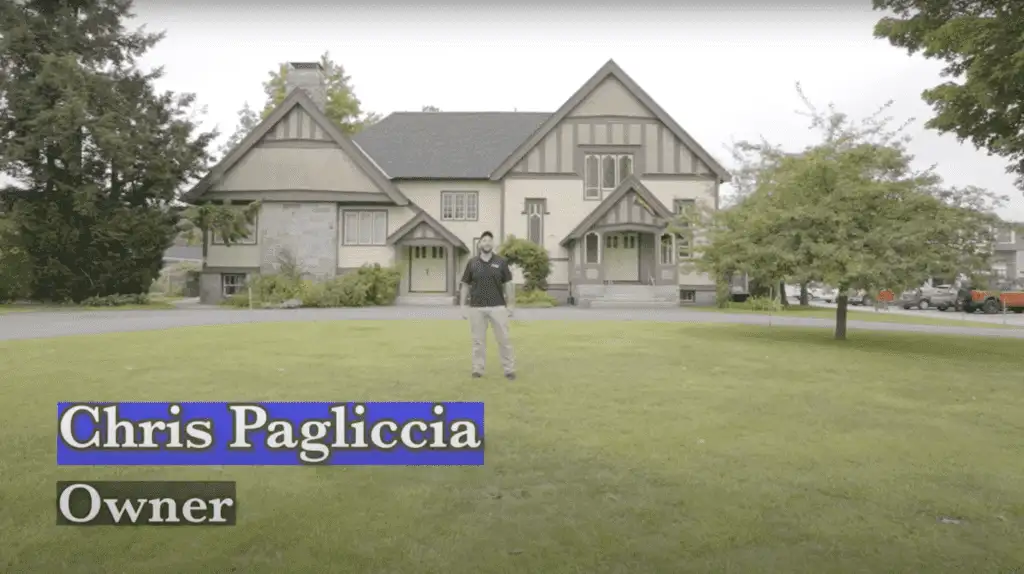Foundation Crack Repair Sudbury MA
Cracks in your home’s foundation are more than just a cosmetic issue. Left untreated, they can compromise structural integrity, impact property value, and lead to costly repairs. For homeowners in Sudbury, MA, understanding the causes of foundation cracks and how to address them is crucial to maintaining a safe and stable home.
Real People - Real Great Results
Crawl Space Video Playlist
Understanding Foundation Cracks
Foundation cracks happen for a reason—your house didn’t develop them overnight. In Sudbury, MA, where weather, soil, and age all play a role, understanding these causes is the first step toward addressing them effectively. Here’s what you need to know:
Common Causes of Foundation Cracks
Four culprits lead the pack:
- Soil Erosion: Water runoff can wash away particles beneath your home, creating voids that your foundation struggles to bridge.
- Settling: All homes shift slightly over time, but too much movement can stress the concrete into cracking.
- Hydrostatic Pressure: Clay-heavy soil traps water like a sponge, creating outward pressure that can push against your foundation walls.
- Extreme Weather: Freeze-thaw cycles—Sudbury winters, anyone?—expand and contract the soil, leaving your foundation vulnerable.

Types of Cracks
Not all cracks mean the same thing, and spotting the difference matters:
- Hairline Cracks: Small, superficial, and often harmless—but keep an eye on them.
- Vertical Cracks: These are common as houses settle. They may not scream “emergency” unless they widen or leak.
- Horizontal Cracks: A potential red flag. These suggest your walls are under lateral pressure and could mean structural trouble.
- Stair-Step Cracks: Found in brick or block foundations, they often signal differential settling (i.e., part of your foundation is sinking faster than the rest).
Signs of Foundation Issues
Cracks aren’t the only indicator your home might be in trouble. Watch for these symptoms, even if the cracks themselves aren’t glaring:
- Uneven Floors: That slight slope you feel when crossing the living room isn’t just in your head.
- Sticking Doors or Windows: When things stop aligning, your foundation might be shifting.
- Gaps Between Walls and Ceilings: Small separations can signal big problems.
Whether the cracks in your foundation are tiny or towering, recognizing the warning signs gives you an edge. Sudbury’s unique conditions make vigilance your best defense—don’t let small issues snowball into massive repairs.
Why Foundation Crack Repair is Crucial in Sudbury, MA
Sudbury, MA’s unique environmental factors make foundation crack repair not just important, but essential. This area isn’t just battling ordinary wear and tear—it’s up against conditions that accelerate damage. First, there’s the freeze-thaw cycle. Winters here can be brutal, with temperatures swinging above and below freezing. When that happens, moisture trapped in the soil surrounding your foundation expands and contracts, putting repetitive pressure on foundation walls. Over time, this natural process can worsen existing cracks or create new ones.
Then there’s the soil. Sudbury’s soil tends to be clay-heavy, and clay is a sponge for water. After heavy rains or snowmelt, that water gets absorbed, which increases hydrostatic pressure—the force of water pushing against your basement walls. This isn’t a slow, harmless pressure. Left unchecked, it can cause small cracks to grow into major structural problems.
Delaying repairs only compounds these issues. Cracks aren’t static; they widen, deepen, and turn into easy entry points for moisture. Once water infiltrates, you’re not just dealing with structural concerns anymore—you’re also opening the door to mold and mildew growth. That damp, musty smell in your basement? It’s a sign you’re already on borrowed time. Costs don’t just rise with delay, they snowball.
For homeowners in Sudbury, the stakes are high. Your foundation isn’t just the literal foundation of your home; it’s the backbone of its structural integrity. Whether it’s freeze-thaw stress or waterlogged soil, knowing when to act separates a manageable repair from a financial disaster down the road. This isn’t about paranoia—it’s about practicality. Fixing the issue sooner keeps your home safe, dry, and standing strong in the face of everything Massachusetts throws at it.

DIY Foundation Crack Repairs: When They're an Option
Not every foundation crack is a call for heavy machinery and a professional crew. For hairline cracks—those thin, superficial lines that show no signs of widening or structural compromise—DIY repair can be a practical, budget-friendly option. These smaller issues can often be tackled over a free weekend with a few tools and some elbow grease.
Assessing the Crack
The first step is to assess whether you’re dealing with a “DIY candidate” of a crack. If the crack is small (less than 1/8 of an inch wide) and doesn’t seem to be growing, you’re likely in the clear to move forward. Keep an eye out for additional red flags, such as water seepage, horizontal patterns, or evidence of the wall bowing inward—these are clear signs that professional intervention is a better option.
Materials You'll Need
Once you’re confident this is a crack you can manage, head to your local hardware store. You’ll need:
- Epoxy injection kits or polyurethane foam sealant.
- A caulking gun for application.
- Safety glasses and gloves (epoxy, in particular, can get messy).
- A trowel or putty knife to smooth out the sealant for a clean finish.
Make sure you set aside time for proper preparation. Cleaning the area of dust, debris, and loose concrete is non-negotiable if you want the repair to last.
The Process
- Prep the crack: Clean the surface thoroughly using a wire brush and vacuum. The cleaner the surface, the better the sealant will adhere.
- Apply the sealant: Depending on your choice of material, inject epoxy or foam into the crack using your caulking gun. Follow the product instructions—every brand is slightly different.
- Smooth and inspect: Use a trowel to smooth over any excess material, ensuring a clean, flush surface.
- Cure time: Let the material cure completely. This can take anywhere from a few hours to a full day, depending on the product.
Know Your Limits
Here’s the thing about DIY fixes: they’re great for minor issues but far from a cure-all. Hairline cracks might stay fixed with the right materials and effort, but anything structural is beyond the scope of a weekend warrior. Horizontal cracks, for instance, often indicate major pressure on your foundation walls, something that foam sealant simply can’t resolve. Even with hairline fixes, keep in mind that a DIY solution might just be kicking the can down the road. For lasting peace of mind, monitor the area regularly to ensure the crack isn’t reappearing or spreading. In short, DIY foundation crack repair in Sudbury, MA, is a solid option for minor issues. But the moment your foundation starts hinting at more substantial problems? Set the trowel down and call in the pros.
Professional Repair Methods for Foundation Cracks
When it comes to foundation crack repair in Sudbury, MA, contractors rely on tried-and-true methods designed to address both the visible damage and the underlying causes. Here’s what you can expect when professionals step in.
1. Epoxy or Polyurethane Injection
For narrow cracks, particularly those less than 1/8 inch wide, epoxy or polyurethane injections are the go-to solution. These materials are injected directly into the crack, sealing it from the inside out and preventing water infiltration. Epoxy also restores the concrete’s integrity, making it a common choice for structural repairs. Polyurethane, on the other hand, is more flexible, making it ideal for cracks that may expand or contract with seasonal changes—a frequent issue in Sudbury’s freeze-thaw climate.
2. Carbon Fiber Reinforcement
When cracks indicate more serious structural concerns, such as bowing or severely stressed foundation walls, carbon fiber strips may be used to reinforce the area. These ultra-strong but lightweight materials are bonded to the foundation walls with epoxy, creating a tension-resistant support system. Carbon fiber is especially effective for horizontal cracks, which are often a red flag for significant pressure on the foundation. The benefits? It’s a cost-effective, minimally invasive solution that reinforces the structure without requiring excavation.
3. Underpinning for Settling Foundations
If your foundation cracks stem from ongoing settlement—characterized by uneven floors or stair-step cracks—underpinning might be needed. This method involves extending the foundation deeper into stable soil by installing piers. Hydraulic piers, for example, lift and stabilize the foundation, effectively halting further settlement. While this process takes longer and is more resource-intensive, it provides lasting stability for homes built on Sudbury’s clay-heavy or uneven soils.
4. Sealing and Waterproofing
For cracks associated with water infiltration, contractors often combine crack repair with a waterproofing approach. This can include applying a waterproof membrane to the foundation’s exterior or installing interior drainage systems to direct water away from vulnerable areas. In Sudbury’s wet seasons, these additional steps can mean the difference between a dry, healthy basement and a persistent moisture problem.
Repair Timelines: What To Expect
The length of repairs depends on the crack’s severity and the method used. Small cracks treated with epoxy injections can often be resolved in just a day, while more intensive repairs like underpinning may take anywhere from several days to weeks. Regardless of the timeline, professional repairs aim for precision and durability—ensuring cracks are not just patched but permanently resolved.
Dealing with foundation cracks can feel overwhelming, but these repair methods are a testament to modern engineering’s ability to restore the stability and safety of your home. Don’t wait for minor issues to snowball into major problems—each of these techniques, when applied by local experts, is tailored to ensure your home stands strong against Sudbury’s demanding conditions.
When To Call Professionals in Sudbury, MA
There’s a fine line between a DIY project and a “drop the caulking gun and back away slowly” scenario, and identifying it can save you a lot of stress—and potentially a lot of money. If you’re noticing cracks that are wider than 1/8 of an inch, like a pencil slipped through and waved back at you, it’s time to bring in the pros. These wider gaps often signify more than surface-level issues, such as structural settling or shifting beneath your home, which no weekend repair kit can handle.
Signs of deeper trouble also include bowing walls, which indicate excessive pressure from surrounding soil, or ongoing settlement—your house essentially sinking unevenly into the ground like it’s had one too many. Water seepage is another big red flag. If you’ve tried pumping a crack full of epoxy or foam only to find persistent leaks, professional intervention is not optional; it’s mandatory.
Calling foundation repair experts in Sudbury comes with tangible upsides. They’ve got tools that don’t come in a home improvement aisle, like laser levels to assess uneven foundations and high-end materials designed to endure Sudbury’s clay-heavy soil and harsh freeze-thaw winters. Plus, they know the quirks of local homes—like how colonial-era builds or post-war ranches behave under years of New England weather—and can tailor solutions accordingly. Professionals don’t just patch and pray; they aim for lasting stability, protecting your home’s integrity for decades to come.
Bottom line: if the crack is big, the wall is bowing, or water is going rogue, don’t hesitate. Early professional intervention will save you from larger, more expensive headaches down the road.

Preventative Measures to Avoid Future Cracks
Preventing foundation cracks in Sudbury, MA starts with vigilance and routine maintenance. Small steps now can save you from massive headaches down the road. First, focus on water management. Ensure your gutters and downspouts are functioning properly, directing water at least 5–10 feet away from your home’s foundation. A steady drip near your walls is essentially an invitation for trouble. If your yard slopes toward your house, you might need to regrade it or install a French drain system to keep water moving in the right direction.
Landscaping is another overlooked culprit. Avoid planting trees or large shrubs too close to your foundation; their roots spread out more than you think and can exert pressure on the foundation or dehydrate the soil during dry seasons. Opt for smaller plants with non-invasive root systems or plant larger greenery a safe distance away. Regular inspections are key. Walk around your home every few months and look for early warning signs—things like small cracks, pooling water, or gaps where soil pulls away from the foundation. These might seem minor but could be the precursors to larger issues. If you’re unsure, hire a professional to conduct annual inspections. Knowing is half the battle.
Finally, winter in Sudbury isn’t kind to foundations. Snow, ice, and the relentless freeze-thaw cycle can wreak havoc. Before the first snow falls, check your basement for moisture issues and seal any trouble spots. Shovel snow away from the perimeter of your home to prevent excess melting from seeping into the soil around your foundation. In short, stay proactive. Foundations crack most when they’re ignored. A little diligence today goes a long way toward ensuring your home stays solid and secure tomorrow.
Costs of Foundation Crack Repair in Sudbury, MA
When it comes to foundation crack repair in Sudbury, MA, costs can vary widely depending on several factors. On average, homeowners can expect to pay anywhere from $500 to $3,000 for crack repair, but more extensive structural problems or complex repairs like underpinning might push costs into the $10,000 to $20,000 range. Here’s what drives those numbers:
Factors Influencing Repair Costs
Size and Severity of the Cracks
- Small hairline cracks with no evidence of structural compromise typically fall on the lower end of the cost spectrum. Filling a simple crack with epoxy or polyurethane can cost as little as $500 to $1,000.
- Larger cracks, especially those deeper than 1/8 inch or connected to other issues like bowing walls, will require more involved solutions, increasing costs significantly.
Type of Repair Method Required
- Basic epoxy or polyurethane injection for sealing is the most affordable option.
- Structural reinforcement, like carbon fiber straps, or larger-scale fixes like underpinning, can escalate expenses quickly due to labor and material intensity.
Accessibility of the Affected Area
- Cracks that are easy to access, such as those visible in a basement, are simpler and cheaper to fix.
- If excavation is required to access exterior foundation walls, labor costs rise rapidly. Excavation alone can add $2,000 to $5,000 or more depending on depth and scope.
Why Investing in Repairs Now Saves Money Later
It might be tempting to delay foundation repairs, but doing so can lead to far greater expenses down the road. A few reasons why immediate action pays off:
- Preventing Structural Damage: Small cracks expand over time, especially in Sudbury’s challenging climate. Freeze-thaw cycles and water pressure can turn a manageable crack into a structural failure, potentially costing tens of thousands of dollars to fix.
- Avoiding Water Infiltration: Unsealed cracks invite water into your basement, leading to moisture problems, mold growth, and even flooding. Mitigating water damage is costly and time-consuming, easily doubling or tripling the initial repair cost.
- Maintaining Property Value: Foundation issues aren’t just unsightly—they’re a red flag for homebuyers. Tackling problems early preserves your home’s value in a competitive market like Sudbury’s.
Investing in professional repairs sooner rather than later saves you time, money, and stress. A quick response not only resolves current problems but also protects your home from future foundation headaches. After all, peace of mind is priceless.
Conclusion
When it comes to your home, procrastination isn’t your friend—especially when dealing with foundation cracks. These imperfections might seem trivial today, but left unchecked, they invite trouble that compounds over time. For homeowners in Sudbury, MA, swift action isn’t just smart—it’s essential. The distinct challenges posed by the local climate and soil demand vigilance and, often, professional expertise. Knowing when to tackle a crack yourself and when to call in the pros can mean the difference between a quick fix and a financial headache. At the end of the day, addressing foundation issues promptly safeguards not only your property’s value but also the peace of mind that comes from knowing your home is built on solid ground.
Reviews from Happy Customers
Our top priority is customer satisfaction, and we work closely with clients to understand their unique needs and goals.






